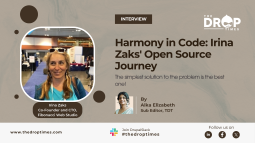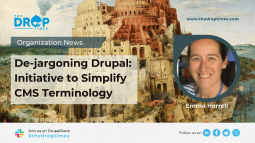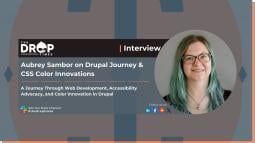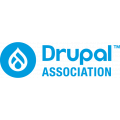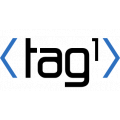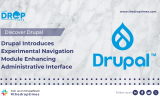Exclusive Insights from Keynote Speakers of DrupalCon Portland 2024
As DrupalCon Portland draws near, the community eagerly looks forward to an event filled with valuable insights, collaborative workshops, engaging events, and enriching training sessions. Among the highlights of this upcoming gathering are the keynote sessions, which shine brightly as opportunities for attendees to gain unique perspectives from esteemed industry leaders and experts.
Kazima Abbas, sub-editor of The Drop Times, shares insights directly from the Drupal Initiative Lead keynote speakers. Among the distinguished speakers are Cristina Chumillas, Senior Front-end Developer at Lullabot, who will explore Drupal's admin UI, and Janez Urevc, Strategic Growth and Innovation Manager at Tag1 Consulting, who will discuss Gander, an open-source performance testing framework for Drupal. Ted Bowman, Principal Software Engineer at Acquia's Drupal Acceleration Team, will cover the latest updates in the Automatic Updates module. At the same time, Fran Garcia-Linares, Senior Drupal Developer at the Drupal Association, will focus on GitLab CI for contrib and provide Drupal.org updates.
Additionally, Jürgen Haas, Co-Founder and Drupal Specialist at LakeDrops, will present ECA, a module enabling site builders to develop automation without programming, and Mateu Aguiló Bosch, Lead Engineer at Lullabot, will discuss Single Directory components and gather insights on theme-building challenges in Drupal. Amber Matz, the other keynote speaker, wasn't available for comment due to her prior commitments.
Whether you cannot attend DrupalCon or simply want a preview of the content, we offer an exclusive glimpse into the keynote lineup.
Cristina Chumillas
TDT [1]: Cristina, given your involvement in the development of the new Navigation, and your role as a senior front-end developer at Lullabot, what key aspects of the new Navigation and the admin UI changes can attendees expect you to highlight during your presentation at DrupalCon? What are some of the unique features or improvements that the new Navigation brings to Drupal’s administration interface?

Cristina Chumillas: We've had the same layout in Drupal's admin UI since the beginning, but the world expects modern patterns. As a first step, we're trying to replace the old top Toolbar with a new, redesigned, left-aligned, collapsible, vertical sidebar navigation for the administration UI. The new navigation module, now experimental in the core, provides multiple customization options, such as adding new custom menus or changing the default Drupal logo.
TDT [2]: Cristina, as a co-maintainer of the new Navigation, Claro and a key figure in Barcelona’s local Drupal community, you’ve been deeply involved in both development and community engagement. Could you share your perspective on the collaborative process behind projects like the Navigation? How does community involvement impact the development and refinement of Drupal’s user experience tools?
Cristina Chumillas: The Navigation has been key to the community. I started working on it thanks to Lullabot paying me to work full time on Drupal contribution for six months, but I couldn't do it all by myself, and I didn't have a stable team to work with. This initiative has gone from the ideation and research phase to design, development, and testing. So, each of these parts has had community members jumping in when they could, which has played a key part in our iterative process. Both devs and designers provided solutions to the challenges discovered with the tests, and great solutions have come from all sides. We even had a lot of help from the community, which gave feedback on the various surveys we've made over time. So I'd say the things that have helped have been the community's interest and help, keeping an active channel with regular meetings, and listening and empowering community members that were involved.
Janez Urevc
TDT [3]: Janez, could you give us a glimpse into what you'll be presenting at DrupalCon Portland? What exciting topics or updates regarding Gander, the performance testing framework for Drupal, can attendees look forward to learning about during your session?

Janez Urevc: My DrupalCon presentation is about Gander, the open-source performance testing framework for Drupal that was created through a collaboration between the Google Chrome team and Tag1 with the support of core developers. Since the initial inclusion of Gander into Drupal Core 10.2, we achieved many new milestones. At the beginning of this year, we published the official documentation and the DDEV add-on, which help users get started with Gander in a matter of minutes. We've also published several blog posts and podcasts. Gander has already enabled us to identify and implement numerous performance improvements for Drupal Core and is even helping to improve the development process—speeding up the Drupal Core test runs by 10%! We also saw the first contribution from outside the core Gander team. I will be presenting all of these, focusing on adoption and helping users get started with Gander on their websites, as well as Drupal Core and Contrib development.
Join me for my talk on Tuesday, May 7, at 4:10 PM. I will also present Gander as part of the Initiatives keynote, which will kick off the contribution day on Wednesday.
TDT [4]: As a Strategic Growth and Innovation Manager at Tag1 Consulting, your contributions to Drupal core and modules are well-known. Could you share a bit about your vision for the role of Tag1 Consulting within the Drupal ecosystem? How does your work at Tag1 Consulting align with your mission to advance Drupal's capabilities and community?
Janez Urevc: Tag1 has always been and remains to be dedicated to Drupal and its community. While we are best known for our advancements to the platform, we contribute in many other ways. For example, our infrastructure experts provide full-time infrastructure management for Drupal.org and all the tolling, allowing the community to collaborate and improve Drupal daily. We have been donating this service to the Drupal community for over a decade and will continue to do so in the future.
We encourage our clients to take an open-source first approach and help them understand the business benefits of doing so. Open source and the platform's future are so important to us that we'll turn down projects if the contract is the anti-open source and the client isn't open to changing it. As a result, we've helped drive the platform's innovation and capabilities, including our recent client-driven enhancements to Workspaces and Layout Builder Plus. It benefits all our clients and the community.
It's also why organizations reach out to Tag1—we are the go-to partner when your project requires new integrations or innovations. It isn't just our passion; contributing makes business sense, too. Tag1 has been recognized as the go-to performance expert in the Drupal space. Organizations partner with us when they have problems or need to ensure their sites run efficiently, smoothly and reliably. The Google Chrome Team, too, recognized it, and approached us as the go-to expert for Drupal performance—and it is how Gander was born; it was built as a collaboration between the Google Chrome Team and Tag1. And we've always ensured that our learnings and experience circle back into the project, making it better for everyone.
Ted Bowman
TDT [5]: Ted, with your vast experience in Drupal, including your current work on implementing automatic updates for Drupal at Acquia, attendees are eager to learn from your expertise. Could you provide a brief overview of what you’ll be presenting at DrupalCon Portland regarding automatic updates for Drupal? What key insights or advancements can attendees expect to gain from your session?

Ted Bowman: I will present the latest changes to the Automatic Updates module and focus on how people can use it now. I will also cover the module's system requirements. Additionally, I will cover advanced usages such as using the new Symfony console script tmmmmmmmmmmmmmmmmmmmmmmmmmmmmmmmmmmhat can be set up with a server crontab command, allowing the site to be updated even if the codebase is write-protected from the web server. I will also give examples of how you can customize the functionality of Automatic Updates with very little code.
TDT [6]: Your contributions to Drupal over the past decade have been diverse, ranging from site building and module development to training others in the Drupal community. How do you perceive the evolving role of automation, particularly in areas like automatic updates, shaping the future of Drupal? Additionally, what advice would you offer to newcomers looking to make meaningful contributions to the Drupal ecosystem?
Ted Bowman: I hope that automation like that offered by the Automatic Updates module will make it easier to maintain a Drupal website and, therefore, bring down the cost of ownership. Hopefully, it will also give people more time to do more interesting development work and provide greater perceived value to their clients beyond mere updates.
On the contribution side, I was also proud to be involved in the Project Update Bot, which provides automated patches to module maintainers to help make their projects compatible with the next version of Drupal Core. As Automatic Updates does for site maintenance, I think this allows module developers to work on more exciting things than just keeping track of Drupal Core API deprecations.
For new contributors, it depends on whether you want to write code or contribute in other ways. If you are not a coder, your perspective and feedback on both Drupal Core and contributed modules and themes are very important because you are closer to the intended end user of Drupal itself. If you found a particular module difficult to understand but finally figured it out, you could offer to improve or create documentation so the next user has an easier time.
As a module developer, I often only had time to finish a new feature and usually didn't leave enough time to provide good documentation. If you are a developer interested in helping with the project, reach out to the maintainer and ask what they need help with. Often, a maintainer might not even have the time to make issues with the tasks that would need to be done.
Another good way to start is to look through issues on drupal.org tagged with "Novice". If you need help, jump on Drupal Slack and ask questions in the #contribution channel.
Fran Garcia-Linares
TDT [7]: Fran, could you provide some insights into your upcoming session at DrupalCon Portland? Will it be centred around any specific initiative within the Drupal community, given your involvement in maintaining and upgrading community websites for the Drupal Association, as well as your contributions to initiatives like the Gitlab acceleration initiative?
Fran Garcia-Linares: I'll be part of a couple of sessions:

- The initiative leads the keynote, focusing this time on GitLab CI for contrib, giving an update on the progress made in the last few months and also leading the contribution day table for GitLab CI for any person that wants to help with the project or has GitLab CI in their projects.
- The Drupal.org update, where we will show the community the latest developments by the team made in the different projects that we lead and maintain at the Drupal Association.
TDT [8]: Fran, in your role as a Senior Drupal Developer at the Drupal Association, you've been actively involved in migrating Drupal 7 sites to Drupal 10. Can attendees expect your session at DrupalCon Portland to offer insights or best practices related to Drupal migration strategies, especially in the context of community websites?
Fran Garcia-Linares: We will mention it briefly at the Drupal.org update session, but we won't offer much insight on it nor talk about best practices. I'm happy to exchange thoughts and share knowledge with anybody who wants to stop me and talk about it in any case.
Jürgen Haas
TDT [9]: Jürgen, could you provide some insights into what you'll be presenting at DrupalCon Portland? Specifically, could you share the topics or themes you'll cover, particularly regarding your work in developing tools, procedures, and automation within the Drupal ecosystem?

Jürgen Haas: As part of the Drupal Project Initiatives Keynote, I'll discuss ECA. This module allows ambitious site builders to unleash Drupal features in the UI to develop their automation without any programming. Originally launched in the summer of 2022, this module has gained traction and popularity, both in several installed versions and by over 40 other modules that have already been integrated into ECA. It stands for "Events, Conditions, Actions", 3 types of plugins that can be combined with no limits by using one of 3 different UIs. The more than 650 available plugins allow for building simple tasks as well as advanced and complex tasks or even full applications. I'm going to present 4 different use cases to give the audience an idea of what's possible and why ECA is a module that should be available on every Drupal site.
There are many areas where the Drupal community can help ECA to grow and improve. I will be talking about the most pressing needs and encourage people to get in touch if they have any desire to participate. ECA is here for everyone, and everywhere, it's open for the community to contribute.
TDT [10]: Considering your expertise in developing tools, procedures, and their implementation, as well as your passion for security and privacy within the Drupal ecosystem, what recent advancements or trends have caught your attention in these areas? How do you foresee these developments influencing Drupal developers and site owners shortly?
Jürgen Haas: There are so many; they keep my excitement at an always high level. To pick a few, there is the upcoming Drupal 11 release together with the GitLab migration, both of which deliver components that will constantly improve developers, site builders and site owners. Making Drupal core smaller, for example, has at least 2 major benefits: core maintainers can even better focus on the really important topics for the core product. On the other hand, the extracted components like forum, book, action UI, and many more will hopefully see some momentum in maintenance and ongoing improvements, driven by the community members who rely on them to be more modern and feature-rich.
At the same time, the Drupal Association and the community are together permanently building new tools, that make developers' and site builders' lives easier, and also ensure the top product and code quality, and even help to improve. What comes to mind are GitLab pipelines for testing, PHPStan for code analysis, Rector for automated code fixes and many more. Hopefully, the issue queue will soon move to GitLab so that we can plan and work even more effectively when building and maintaining Drupal components. Those aspects are just the tip of the iceberg. Overall, I see the trend to break the huge Drupal ecosystem into granular components and let powerful tools help us make each of them as good as possible, if not perfect. Then, everyone out there in the world can pick and choose from all those available "diamonds" and compose their application based on Drupal; rest assured that they all play together nicely for them.
Mateu Aguiló Bosch
TDT [11]: Mateu, with your extensive experience as Lead Engineer at Lullabot and your involvement in initiatives such as the API-First Initiative for Drupal, what insights can you share about your upcoming session at DrupalCon Portland? Specifically, what topics or themes will you be discussing?
Mateu Aguiló Bosch: Now that Single Directory components have been in the core for a year, I am eager to learn what the talent in our community has done with this tool. I believe that we flexibly built SDC to accommodate most use case scenarios but solid simultaneously to help mitigate the blank canvas paralysis.

I want to chat with people to learn how they deal with build steps for their SCSS or TypeScript on their component-based themes. I am eager to learn the challenges that contrib theme developers face when sharing components in base themes. I am also interested in knowing how successful other agencies have been in developing generic components to share across projects. In general, I want to gather experience in building efficient tools on the most intricate side of Drupal sites and their themes.
In my part for the initiatives keynote, I will be trying to pick up the thread from the keynote in Pittsburgh. I ended up sharing my vision for the next steps after SDC became part of Drupal Core. We have accomplished all the goals we set out to do and picked up new goals along the way. I hope the audience leaves the room with a sense of accomplishment for this year and is motivated to help out with the big things to come.
TDT [12]: Your contributions to the Drupal community, including the development of Single Directory Components and coordination of the API-First Initiative, highlight your unique expertise at the convergence of front-end and back-end development. Considering this, what recent trends or advancements have caught your attention in this area? How do you envision these trends shaping the future of Drupal and broader web development practices?
Mateu Aguiló Bosch: I am focusing on component-based solutions for Drupal. This is a relatively unexplored territory. Even though many of us have been using components in Drupal for years, every agency (and even every project) had a different component solution. The current time is exciting because we now have a standardized solution to this problem. This means that with that foundation, we can now tackle the bigger challenges. I am interested in working on implementing design tokens on top of design system implementations using Single Directory Components. This way, we will be able to create generic components that can be styled to different brands. With that, I would like to work on figuring out what generic components make sense for Drupal Core. Additionally, I think that a federated network of collections with themable generic components would help us move much faster. This idea could re-use lessons learned from Compony, and how the JavaScript ecosystem shares and imports components.
However, the most relevant advancement for Drupal will be Experience Builder. Experience Builder will benefit from all of the above and put components in the hands of the site builder and the content creator. This will empower site builders in small sites, and increase development efficiency in enterprise sites.
As we draw this article to a close, we trust it has offered a comprehensive preview of what's in store at DrupalCon. We thank all the keynote speakers for generously sharing their insights. To those attending the event, we wish you a rewarding and enjoyable experience. Stay tuned for more updates on the horizon!
Note: The vision of this web portal is to help promote news and stories around the Drupal community and promote and celebrate the people and organizations in the community. We strive to create and distribute our content based on these content policy. If you see any omission/variation on this please let us know in the comments below and we will try to address the issue as best we can.




